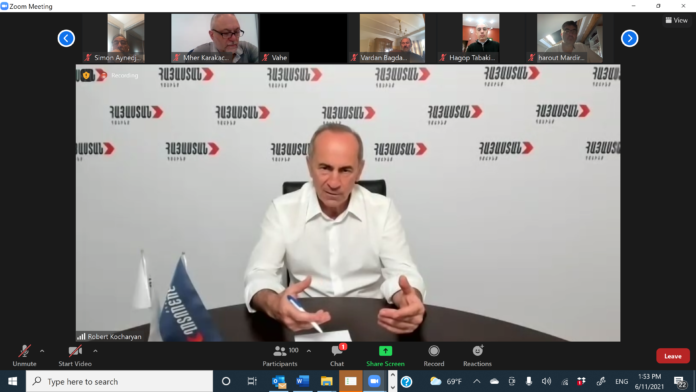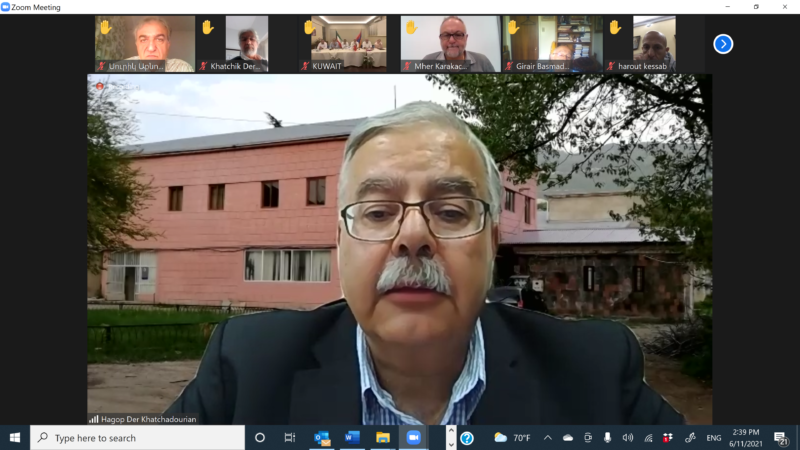YEREVAN — Former Armenian president and current presidential candidate for the Armenia Alliance [Hayastan Dashink] Robert Kocharyan held an online press conference via Zoom for various diasporan Armenian media and representatives on June 11, with the support of his electoral coalition partner, the Armenian Revolutionary Federation (ARF). The conference lasted over one hour and there were 100 participants from various parts of the world at its peak.
The conference was run by public relations and marketing expert Hrachuhi Mirzoyan, herself a candidate in the parliamentary elections for the Armenia Alliance. It was the eighth such conference or meeting that Kocharyan had held that day, and he appeared tired. The ex-president preferred not to give an opening statement but rather to immediately begin to answer questions. Some 40 questions had been collected previously (the Mirror-Spectator did not have the chance to participate in this) and then grouped together into similar categories, which primarily dealt with the Armenian economy, relations with the diaspora, the future of Armenia and the way out of the current crisis for Armenia. Much of the former president’s comments were devoted to criticizing the present government of Prime Minister Nikol Pashinyan.
President Kocharyan cast full blame for the current security crisis on the current regime. In response to a question as to whether it was possible to reject the November 2020 trilateral ceasefire agreement on the basis of the Armenian Constitution, he declared that from a practical point of view, not respecting this agreement will create more problems than accepting it. On the other hand, the questions of how he would deal with the Azerbaijani demand for access through southern Armenia to link with Nakhichevan, or other land and border issues were not discussed.
He stressed that it was necessary to quickly solve the socioeconomic issues of the refugees from Artsakh. In that connection, he mentioned the roughly $100 million collected during the wartime as part of the Hayastan All-Armenian Fund campaign, and the lack of accounting for what has happened to that money. Nonetheless, further sums remain which could resolve many issues for the refugees, he said.
Kocharyan noted two other types of crises for which he stated the current government was responsible: the increase of political tension and polarization in Armenian society, and a downturn in the economy, including a decline in investments from abroad and an increase in emigration. He said that today’s situation, when everyone from 14 years old to the elderly, are preoccupied with politics, is not a normal or healthy state of affairs.
He declared that the current government does not understand economic policy and declared that if in power, he could assure economic growth and increase the amount of outside investments. He would encourage the use of new technologies, and stated that in a country like Armenian without gas or other great natural resources, there is no other choice.











